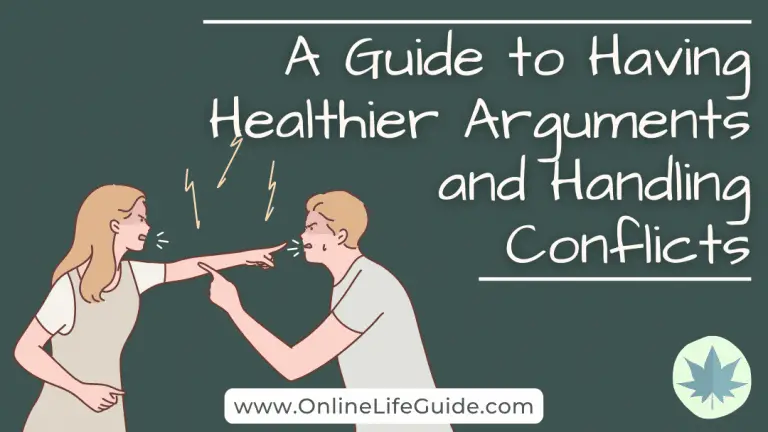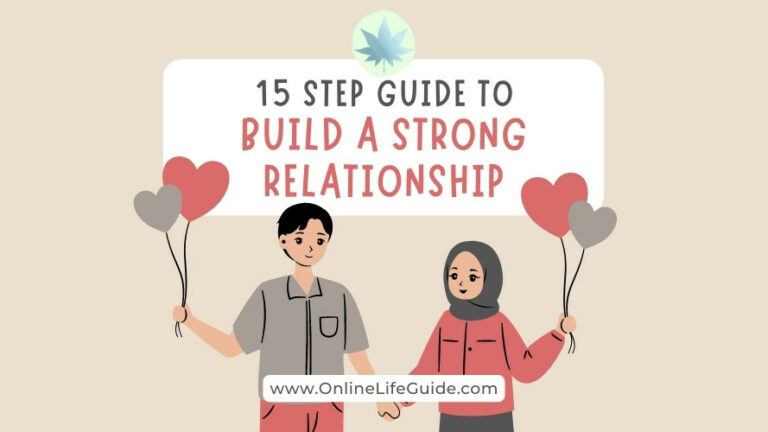Top 15 Signs of Healthy Boundaries in Relationships
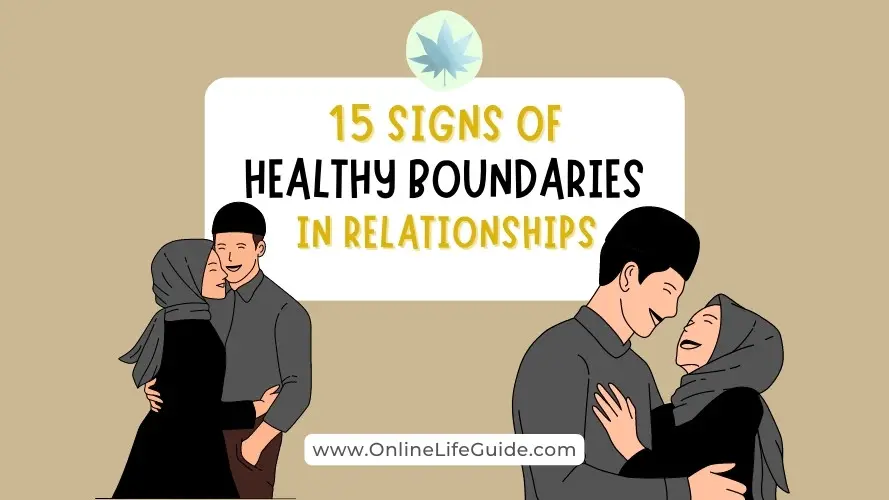
It all started 7 years ago when this couple said “I do” to a lifetime of companionship. Meet Adam and Sarah. A healthy couple who have different interests and hobbies, and have contrasting preferences.
In fact, they pretty much have opposite natures, likings, and dislikings when it comes to a lot of routine things. Adam likes to play video games in his spare time and loves to spend part of his weekend maintaining his beloved custom-built motorcycle.
Sarah on the other hand is a teacher and a painter. She loves to spend some of her off days in her little studio, working on her next painting.

When it comes to social circles, Sarah has her own little girls’ squad, whereas Adam frequently goes on rides with his biker buddies.
Sarah is very organized, schedules everything to a T, and makes sure things are done on time. Adam, even though a fairly responsible person, can be a bit clumsy and spontaneous.
Yet, surprisingly, they managed to live a happy life all these years and enjoy the fruits and fulfillment of a healthy relationship.
How is it possible you might wonder?
In today’s world where people are so easily annoyed over the smallest of things and patience is becoming a rare virtue, how are Adam and Sarah managing to live their lives almost unscathed by the contrast in their personalities and nature?
This was only possible because they made a conscious choice since the very beginning of their relationship to establish clear boundaries within the relationship as well as with the outside world.
This is what is allowing them to maintain a sense of autonomy and emotional independence which is vital for the longevity and health of any relationship.
Even with their own separate hobbies and social lives, Adam and Sarah make sure to schedule date nights with each other and spend quality time together which keeps the spark alive in their relationship.
Whenever they would find themselves in conflicts and disagreements, they would consciously navigate them with empathy, patience, and respect. They were comfortable and secure in expressing their feelings in a civil way without offending or disrespecting each other.
Most importantly, after all these years of marriage, they are still well connected to who they are as individuals. They never lost or struggled with their personal identities.
Why is it so Important to Set Healthy Boundaries in Romantic Relationships?
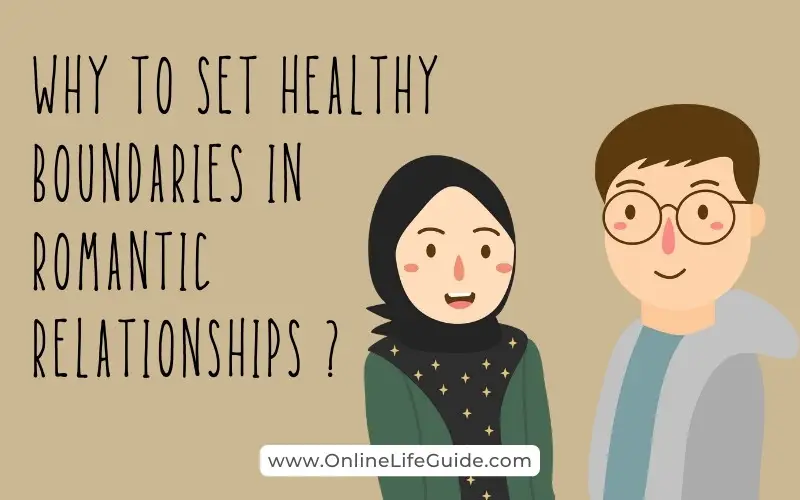
Often people see boundary setting as pushing people away and putting up a protective bubble around themselves to not let other people in.
While that might be true for general boundary setting in some other
areas of life, the purpose of setting boundaries in romantic relationships is a bit different.
One of the most important characteristics of healthy couples who have good boundaries is that their main focus when setting boundaries is to protect the relationship, instead of protecting themselves.
The essence of setting boundaries in romantic relationships is to bring the couple closer and develop an ever-growing understanding and bonding, instead of putting up walls and pushing your significant other away.
If you are with the right person, you don’t need to protect yourself, but you still need to protect the relationship from the wear and tear of life, and from the fallibility of human nature.
(If you do feel the need to protect yourself, then your own well-being should always be the priority, and apart from setting firm boundaries for yourself, you must also seek help and involve the right people who can step in and help you out.)
Considering Adam and Sarah’s story, if we are to put together a list of traits that their relationship has, here is exactly what healthy boundaries look like and some real-life examples of how couples with healthy boundaries treat each other:
15 Signs of Healthy Boundaries in a Relationship

1. Mutual Respect
There is mutual respect with regard to each other’s opinions, feelings, and preferences. They are willing to listen to each other’s perspectives even if it differs from their own.
2. Ability to Have Difficult Conversations Without Fighting
Having healthy boundaries allows you to have difficult conversations about sensitive issues or matters of disagreement in a civil manner.
The disagreements and arguments don’t turn into fights and become a source of resentment later on.
A healthy couple has boundaries for how far an argument should go. They are conscious of those boundaries and don’t allow themselves to get carried away during argumentative discussions.
If an argument starts to grow to the point where it becomes disrespectful, personal, or can potentially have a negative impact on their relationship, they drop the argument and prioritize their relationship over their ego.
3. Space to Pursue Hobbies and Goals
They give each other space (and even encourage each other) to pursue their own individual interests and hobbies outside of the relationship.
Having different career paths or separate personal goals doesn’t clash with their relationship. They trust each other that if ever their goals and hobbies get in the way of their relationship or family responsibilities, they’ll know how to prioritize and make the right choices.
4. Ability to Say “No”
They have the ability to kindly and lovingly say “no” to something when they’re feeling overwhelmed or having a stressful day.
The other partner also responds in a caring and understanding manner, without being pushy or making them feel guilty.
5. Clear and Open Communication
It’s nearly impossible to build a healthy relationship without open and timely communication habits.
Healthy couples don’t keep things in their hearts and let them rot over time. Whenever there’s an issue within the relationship, they are quick to address it and have an open discussion to resolve it as soon as possible.
Having strong boundaries allows them to have such discussions calmly without things turning toxic.
A lot of people hesitate to have discussions with their partners regarding issues in their relationship because they’re afraid of getting into a fight (which only happens when there are poor boundaries).
So they keep delaying things indefinitely until things turn toxic and they become resentful of each other. One unresolved problem in a relationship leads to 10 more. This can only be avoided through timely communication.
6. No Passive Aggressive Language
If we psychoanalyze why some people use passive-aggressive language to communicate their thoughts and feelings, we will mostly find that those people have boundary issues. They usually:
- Expect too much from people
- Don’t respect other’s opinions and choices
- Aren’t able to communicate directly, openly, and timely
Since people with healthy boundaries don’t generally have any of these problems, they naturally don’t resort to passive-aggressive behaviors or language patterns to convey their message.
7. No Use of Manipulative Tactics
People manipulate others when they want them to do something that is against the other person’s will or preference.
Since healthy couples are well aware and respectful of each other’s boundaries, there is no mental or emotional manipulation in the relationship.
If they want to convince their partner about something, they’ll do it openly and respectfully, not trying to manipulate them or playing with their psychology.
8. Maintaining Personal Identity and Autonomy
There is no enmeshment or codependency in the relationship. Both people in the relationship are well connected with their individual identities. They know who they are and what their individual purpose is.
Even though they act as a team within their relationship, they are able to hold up just fine on their own whenever they have to.
9. Boundaries Around Physical Affection and Intimacy
There is no coercion or shaming. A couple with healthy boundaries respects each other’s preferences and desires.
They are also mindful of each other’s limitations and dislikes, making sure there is mutual fulfillment.
There is open and ongoing communication regarding preferences, desires, dos, and don’ts when it comes to physical intimacy. They never use shame or guilt to get what they want.
They are also respectful of each other’s privacy and don’t share the intimate details of their relationship with anyone else.
10. Accepting Each Other as They Are
People having healthy boundaries in a relationship don’t feel the need to change each other.
They don’t try to project themselves onto their partner. They wholeheartedly accept them as they are with all their little quirks and appreciate the diversity between them.
11. Digital Privacy
Even though in the modern age a lot of people feel the need to know all the passwords for all the devices and accounts of their partner, healthy couples have boundaries about digital privacy.
They have enough trust and respect for one another that they don’t feel the need to keep an eye on each other’s digital activities.
Now it’s understandable to have the desire to have full access to your partner’s digital footprint in the age when a lot of people have secret online identities and activities, but then again, there’s a good chance the relationship isn’t healthy anymore once there is doubt about the other person’s virtue.
12. No Urge to Prove Eachother Wrong
There is no “see, I was right and you were wrong” kinda thing in a healthy relationship with strong boundaries.
There is tolerance and respect for intellectual differences and views, and it’s never taken personally.
13. Space for “Me-Time”
No matter how close we are to our partner, we all need a good me-time alone with ourselves from time to time. In fact, it’s crucial for our mental, emotional, and spiritual health to periodically spend some time alone.
Healthy couples allow each other this space to spend time alone without feeling offended and insecure, and without feeling the need to be with each other all the time.
They don’t think they are growing apart when their partner wants some solitude and feel the need to retreat into their cave.
14. Not Talking Negatively About One Another
No matter how big of a fight they get into, couples with boundaries never disclose their disagreements or talk negatively about each other in public, whether it be with friends, family, coworkers, or even their own children.
They have rules and boundaries even with regard to fights.
Please note that we are not talking about abusive relationships here. If someone is in an abusive relationship, they should definitely talk to someone about it who can help them get out of that situation.
15. Taking Responsibility for Your Own Moods
While our emotions are often influenced by the people around us, especially our partners, couples who set boundaries avoid blaming each other for their moods.
If one of them is having a bad day or isn’t in a good mood for some reason, the other one knows how to take charge of their own emotions and improve the atmosphere in the home instead of making things worse by mirroring their partner’s emotional state.
How to Develop Healthy Boundaries in a Relationship
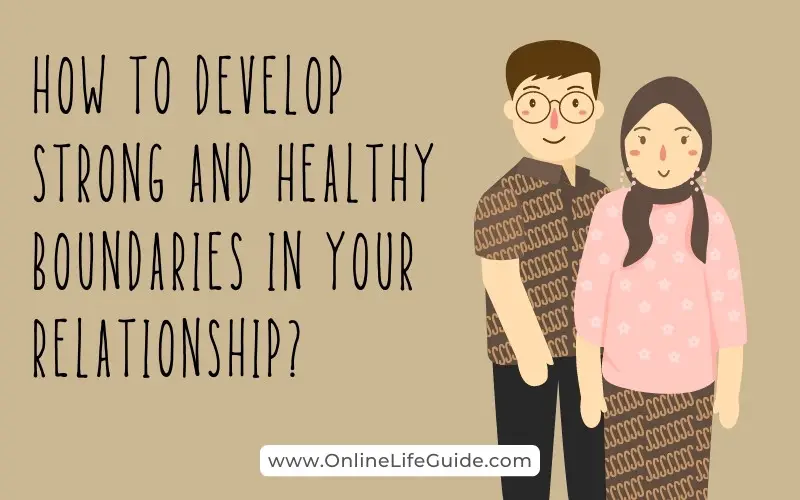
If after reading all these signs, you think your relationship checks a lot of these boxes, then great! I’m genuinely happy for you. But if you are left thinking “if only my love life could look like this”… I’ve got you.
If your relationship is suffering from poor boundaries, you need to learn about setting boundaries ASAP.
In all honesty, setting boundaries is not rocket science. It just requires some consistent and deliberate shifts in how you deal with certain things in your relationship.
Most people suffer from poor boundaries because they don’t even know what their boundaries are.
Knowing exactly what your personal, emotional, intellectual, financial, and physical boundaries should be is paramount to your ability to set good boundaries that’ll improve not just the quality of your relationship but also the overall quality of both of your lives.
I have a very thorough guide on How to Set Healthy Boundaries in Relationships in which you’ll learn all about the boundary-setting dynamic:
- How lack of boundaries leads to enmeshment issues
- 7 steps to setting healthy boundaries
- Types and examples of boundaries in different areas of your life
- Why certain boundaries don’t work and what to do when your boundaries are violated.
Hope this has served you well. As always, make sure to take good care of yourself, and I’ll see you in the next guide!



